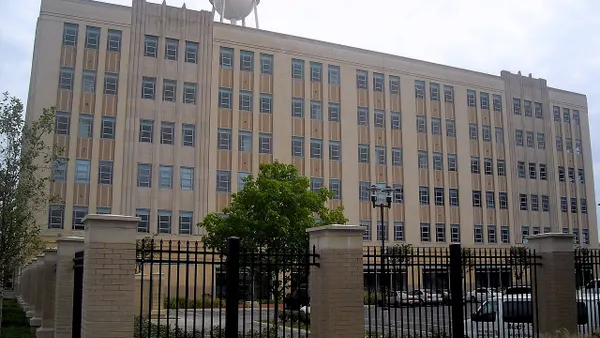Dive Brief:
- The 2nd U.S. Circuit Court of Appeals will not convene en banc to reconsider allegations that it said relied too heavily on national statistics as evidence that a company's hiring ban on applicants with certain criminal convictions disparately impacted Black job seekers (Mandala v. NTT Data, Inc. No. 19-cv-2308 (2nd Cir., Feb. 23, 2021)).
- In September 2020, the 2nd Circuit affirmed a lower court's decision to dismiss a case that argued an IT services provider's policy not to hire applicants with certain criminal convictions disproportionately affected African American applicants. The plaintiffs used national statistics from agencies such as the U.S. Department of Justice, the U.S. Census Bureau and the U.S. Equal Employment Opportunity Commission to show that arrest and incarceration rates are higher among African Americans than whites. "But the fact that such a disparity exists among the general population does not automatically mean that it exists among the pool of applicants qualified for the jobs in question — what is true of the whole is not necessarily true of its parts," the court said. The plaintiffs, who applied for Salesforce and web developer roles at NTT Data, were set apart from the general population by their qualifications. Comparisons to the general population were therefore of "little probative value." "It is not much of a stretch to imagine that arrest and conviction rates are negatively correlated with education," the court opined. "So while Plaintiffs' statistics show that African Americans are on average more likely to have been convicted of a crime than whites, that does not, without more, make it plausible that an African-American web developer with the educational and technical qualifications to work at NTT is more likely to have been convicted of a crime than his caucasion counterpart."
- One 2nd Circuit judge dissented from the September 2020 decision, arguing that, using the national statistics, the plaintiffs "plausibly alleged" that NTT Data's policy had a disparate impact on African American job seekers. The judge also dissented from the court's decision denying a rehearing en banc, arguing that, in doing so, the court ignored an issue "of exceptional importance": "the adverse impact of an absolute convictions bar on individuals seeking employment — an impact disproportionately borne by African Americans."
Dive Insight:
There's a growing push in the U.S. to remove the barriers standing in the way of job seekers with criminal histories.
States and cities have adopted ban-the-box legislation, which prohibits employers from requiring applicants to indicate whether they have a criminal history. Some research has indicated the laws are productive. A 2019 study from Case Western Reserve University revealed employment increased by up to 4% in high-crime U.S. neighborhoods where ban-the-box laws were in effect.
Some employers have devised their own strategies to minimize employment barriers for those with criminal records. Cosmetics retailer the Body Shop, for instance, announced in February 2020 that it would implement an "open hiring model" and skip background checks for applicants.
Federal law allows employers to conduct background investigations on applicants. The Fair Credit and Reporting Act mandates, among other things, that employers notify applicants when they're going to conduct a background check and let them know that the information they received led them to revoke an employment offer.
But the law doesn't insulate employers from claims like those alleged in Mandala. Macy's was accused of violating Title VII of the Civil Rights Act of 1964 in June 2019. The lawsuit, brought by a non-profit that provides reentry assistance, claimed the department store's policies and practices reinforced the criminal justice system's racial discrimination and resulted in unjustified racial disparities in employment opportunities. The parties settled the suit last year.















